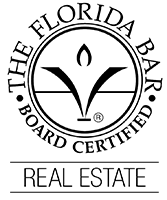Florida Court Says $2 Million Claim For Elderly Exploitation and Theft Lacks Sufficient Priority In Probate Court
Florida probate lawyers know that when a Florida resident dies owing people money those people need to file claims against the decedent’s estate in a Florida probate court proceeding.
The same applies when the decedent dies in an auto accident: anyone claiming that the decedent caused injuries must file a claim in the probate proceeding.
The same also applies when anyone claims that the decedent stole money from them: they must file a claim in the probate proceeding.
Florida probate lawyers also know that just because a claim is filed in probate does not mean it will be paid. The first obstacle to getting paid is that the personal representative of the estate might object to the claim.
If that happens, then the person who filed the claim must file a separate lawsuit in civil court. So, if the claim was for money lent, there would be a civil lawsuit for money lent. And if the claim was for an auto accident, there would be a civil lawsuit for negligence. And if the claim was for theft, there would be a civil lawsuit for that. In each of those cases, it would go through the civil court process of filing pleadings, taking discovery, and holding a trial.
Florida probate lawyers know that if the claimant wins at trial, the civil court judge would enter a judgment in favor of the claimant and against the estate. But that still does not mean that the claim, now also a judgment, will be paid. That’s because there is a Florida probate statute that sets forth the order of priority of payment of claims, even if the claims are based on judgments.
Some claims have higher priority than others. Certain taxes, estate administration expenses, estate legal fees, last illness medical expenses are in higher classes of priority than general claims for money lent, auto accidents, and theft.
Some Florida probate and real estate lawyers, including me, have wondered what would happen if a probate claimant went through the above process in civil court and won at the civil trial and got a judgment against the estate and then took the extra step of recording a certified copy of that judgment in the county’s official records.
Doing so creates a judgment lien on all real property owned by the judgment debtor in that county. F.S. §55.10. Would that give the claimant the right to levy on the estate’s real estate even if the claimant was in a lower class of priority?
In April 2022 the Florida Second District Court of Appeal in Jones v. McKinney, Case No. 2D21-252, 2022 WL 1159586, said no. Someone holding a judgment lien by recording a certified copy of a judgment cannot jump ahead and ignore the priority statute. Its claim must still follow the rules of priority set forth in the Florida Probate Code. The court pointed to F.S. §733.706, which says that claims on all judgments against a decedent must be filed in the same manner as other claims.
Even though the judgment in this case was based on a jury verdict that the decedent committed exploitation of a vulnerable adult and civil theft and the claimant’s victim incurred $757,000 in actual damages, which the trial court tripled because it was for civil theft of an elderly person, resulting in a total judgment of $2,271,000.
The result might have been different if the claimant had been a mortgage lender instead of a victim of elder exploitation and theft. The court notes an exception in F.S. §733.706 for mortgages and other liens encumbering specific property. The court based its decision on the 1968 2nd DCA case of County of Pinellas v. Clearwater Federal Savings & Loan, 214 So.2d 525, that says a judgment lien is a general lien, which attaches to any property currently owned or subsequently acquired by the judgment debtor, whereas a mortgage is a lien upon specific property.
All of this points to the bottom line: Florida probate creditors have multiple hurdles to getting paid. And I haven’t even brought up the most common hurdle, the strict statutory deadline for filing claims.






